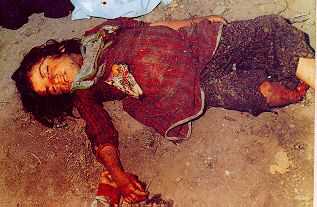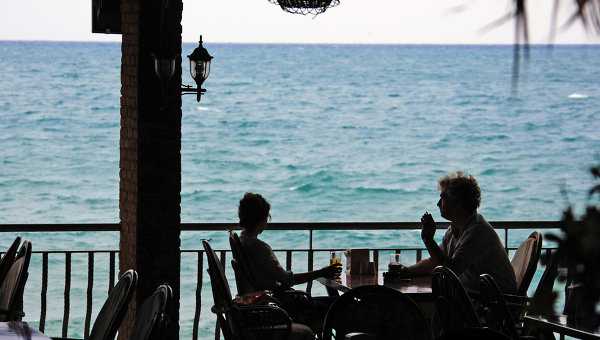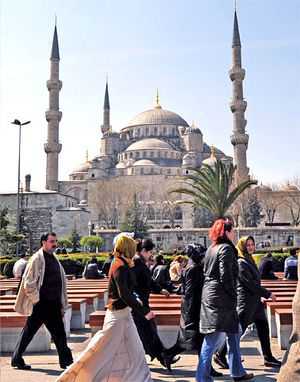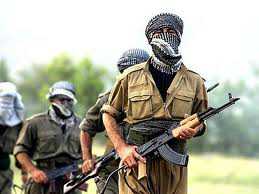Terörün altındaki gerçeklerle ilgili sunuma buradan ulaşabilirsiniz.

Download

Terörün altındaki gerçeklerle ilgili sunuma buradan ulaşabilirsiniz.

Download

On the last day of October, a suicide bomb rocked downtown Istanbul, wounding over 30 people: a reality check on what constitutes an act of terrorism. The Turkish authorities have identified the suicide bomber as a 24-year-old man who is alleged to have joined the armed Kurdistan Workers’ Party, the PKK, in 2004. The PKK has denied responsibility. But whoever is responsible should be brought to justice under Turkey’s counterterrorism legislation.
Unfortunately, though, many people caught up in the Turkish government’s response to terrorism have nothing to do with violence. Their offense could be described as political activism, including entering the fray in representative politics. Hundreds of people are facing prosecution — or already serving substantial sentences — under Turkey’s terrorism laws. In many cases, their offense was no more than taking part in a pro-Kurdish protest march or at most throwing stones or burning a tire at a protest.
In the past three years, Turkish courts have repeatedly relied on 2005 counterterrorism laws and case law to convict Kurdish demonstrators. The courts have treated these protesters as though they were armed militants in the PKK, the Kurdistan Workers’ Party, on the grounds that the PKK had urged people via the radio or other public media to take part in the demonstrations.
Demonstrators in southeast Turkey have been jailed for no more than holding a banner at a rally or shouting a slogan praising the jailed PKK leader Abdullah Öcalan, a new Human Rights Watch report shows. Others have been sentenced to more than 10 years in prison for shouting slogans, making victory signs and throwing stones during demonstrations. Domestic and international criticism over these kinds of prosecutions of children led parliament in July to quash their convictions and prevent the future prosecution of children in courts that specialize in terrorism cases. But the laws remain otherwise unchanged, and prosecutions of adults continue.
Those of us who have monitored the evolution of Turkey’s response to Kurdish political aspirations find this turn of events especially disquieting. In the 1990s, as part of a team of lawyers, I represented many innocent victims jailed, abused, or displaced at the height of the ongoing military conflict with the PKK simply for expressing, or being perceived to hold, pro-Kurdish sentiments. The European Court of Human Rights repeatedly condemned those tactics. These current prosecutions and jailings also violate Turkey’s human rights obligations.
Turkey should know from its history that this approach won’t work. Its failure over the past two decades to distinguish between those engaged in violence and those who merely hold political sympathies or opinions at odds with the strong, singular identity and nationalist agenda of the state has done little to advance security or democracy. But it has left Turkey with a record of serious human rights violations.
The prosecutions of protesters are part of a wider crackdown on pro-Kurdish legal political parties. On January 13, 2011, the Diyarbakir trial of 152 members and officials of the former Democratic Society Party, and its successor, the Peace and Democracy Party, which has 20 members in parliament. will resume. The trial has been under way since October 18. Charges levied against the defendants range from separatism to membership in an armed organization, to aiding or abetting such an organization.
The defendants include serving and former mayors, a prominent human rights defender, and lawyers. Across Turkey around 1,700 party members are in detention facing similar charges.
The arbitrary use of anti-terror laws against acts of political opposition violates human rights central to a functioning democracy — freedom of expression, association and assembly — and undermines the rule of law. The UN expert on human rights and terrorism has warned states against straying beyond the legitimate scope of counterterrorism legislation.
Turkey has improved its human rights record in recent years, with a decrease in torture and a reduction in the length of detention periods in police custody. The government spoke last year of “the democratic opening” it intended to create “by broadening and strengthening … citizens’ democratic rights.” Many saw this as opening political space for Kurds, who have legitimate concerns about discrimination and the need to recognize their cultural rights and to allow them equal political participation and representation.
But the latest crackdown perpetuates the flawed approach of the past, closes the space for political dialogue, and sends a message that peaceful protest and democratic dialogue cannot deliver change. The risk is that such a message will make armed opposition more attractive.
Attacks such as the suicide bombing in Istanbul last month are qualitatively, legally and morally different from the acts of many hundreds of protesters sitting in Turkish jails, or the political activists who champion the Kurdish case through the ballot box. For the government and the courts to recognize that difference is central to justice for victims of actual terrorism, and for Turkey’s Kurdish minority.
Aisling Reidy is senior legal adviser at Human Rights Watch. Between 1996 and 2001, together with lawyers from the Human Rights Centre at the University of Essex, and the Human Rights Association in Turkey (IHD), she represented applicants from southeast Turkey before the European Court of Human Rights.
via Aisling Reidy: How Turkey Misuses the Terrorism Card.

By SEBNEM ARSU
ISTANBUL — The suicide bomber who attacked a police unit in the heart of Istanbul on Sunday had ties to the separatist Kurdistan Workers’ Party, the Istanbul governor’s office said Tuesday.
The 24-year-old bomber, who wounded 32 people and killed himself, struck on the last day of a unilateral, two-month cease-fire by the rebel group, known by the initials P.K.K.
There was no immediate response from the organization, which had earlier emphatically denied having anything to do with the bombing and declared an eight-month extension of its cease-fire.
The bomber, Vedat Acar, born in Van, a predominantly Kurdish town in southeastern Turkey, had joined the outlawed group in 2004, the governor’s statement said.
NTV, a private television network, reported that Mr. Acar had entered the country in August through a security post on the Iraqi border, where the P.K.K. has had a base for decades.
The bomb exploded Sunday morning in Istanbul’s busiest plaza, Taksim Square, wounding 15 police officers and 17 civilians.
Some senior members of the P.K.K., including Abdullah Ocalan, the group’s jailed leader, have been urging a political solution to the Kurdish conflict, which has claimed more than 40,000 lives since the early 1980s.
Turkish nationalists, however, regard the political steps suggested by the P.K.K., like the start of official dialogue with Mr. Ocalan and constitutional recognition of Kurdish identity, as a threat to Turkey’s unity.
Some Kurdish analysts who favor a peaceful resolution to the conflict consider attacks like the one on Sunday to be efforts to derail political progress.
“This attack came at a time when more effective, prominent circles were prepared to promote a democratic solution to the Kurdish issue at large,” said Umit Firat, a Kurdish intellectual. “Neither the state, the military, nor the people yield to such provocations anymore. Our nation knows about such dirty tactics well by now.”
The government, led by the Justice and Development Party, has passed legislation improving the cultural rights of Kurds and offering them political recognition.
For decades starting in the 1930s, Turkey tried to enforce a policy of absorbing the Kurds, the nation’s largest minority — now more than 12 million people out of a population of 78 million — into a greater Turkish identity.
The government, however, remains reluctant to introduce the Kurdish language in public schools and refuses to offer a general amnesty for fighters based in the mountainous regions of northern Iraq.
Turkey’s aspiration to become a full-fledged member of the European Union has been the strongest driving force behind granting greater rights to the Kurds.
Still, the union has denounced violence by the P.K.K., and many countries, including the United States, regard the group as a terrorist organization.
A version of this article appeared in print on November 4, 2010, on page A7 of the New York edition.
via Turkey Links Suicide Bomber to Kurdish Group – NYTimes.com.

Human Rights Watch (HRW) has issued an extensive report in which it strongly criticized Turkey for its handling of cases opened against individuals who took part in protests organized or supported by the terrorist Kurdistan Workers’ Party (PKK).
The 75-page report, titled “Protesting as a Terrorist Offense: The Arbitrary Use of Terrorism Laws to Prosecute and Incarcerate Demonstrators in Turkey,” said “legal amendments since 2005, along with case law since 2008, have allowed courts in Turkey to convict demonstrators under the harshest terrorism laws, by invoking two articles of the Turkish Penal Code [TCK] in combination with the Anti-Terror Law.” At a press briefing on Monday, HRW’s Emma Sinclair-Webb, who authored the report, said that sometimes a demonstrator can be charged with a heavier punishment than a real member of the armed terrorist group. “Once you remove freedom of assembly and expression, you make an armed fight more appealing. … That the definition of terrorism is too vague also promotes an armed fight,” she added.
The report she authored is based on a review of 50 cases heard at relevant courts in Diyarbakır and Adana, the two provinces with the highest caseload of these types of cases. The reports says that hundreds of people are serving heavy prison sentences in Turkey because they chanted slogans or carried posters for the PKK and its jailed leader, Abdullah Öcalan, made a victory gesture, threw stones to police forces or burned tires during a protest.
Two of the 50 cases the report examines are of Selahattin Erden and Vesile Tadik. Erden was handed a prison term of over six years for holding a banner, but Hayrettin Teğin, another suspect who was also accused of holding the same banner was acquitted.
Tadik’s case is no less notable. The suspect, illiterate and a mother of six, attended a demonstration last year to protest Öcalan’s prison conditions and carried a banner that read “Approaching Öcalan is approaching peace.” She was convicted of “making propaganda for a terrorist organization” and of “membership in an armed organization” as well as of having “committed a crime on behalf of the PKK.” She was punished with seven years and one month in prison.
03 November 2010, Wednesday
MELIK DUVAKLI İSTANBUL

E.U. candidate Turkey has been strongly condemned in a report by the U.S.-based Human Rights Watch for jailing peaceful Kurdish demonstrators.
The 75-page report by the U.S.-based Human Rights Watch, says hundreds of people have been imprisoned for participating in a peaceful Kurdish rights demonstration. Report author Emma Sinclair Webb says it is a worrying new trend.
“In the penal code you have some very widely drawn provisions which have been used in the last three years to charge demonstrators and prosecute demonstrators as though they are members of an armed terrorist organization,” said Webb.
The report says that is because Turkey’s highest court has ruled that anyone who participates in a demonstration that is being supported by the banned Kurdish rebel group the PKK or its media affiliates can be considered to be a member or supporter of that organization.

The PKK has been fighting the Turkish state for greater Kurdish rights for the past 25 years.
Sinclair Webb says the report includes 26 cases studies.
“The implications are that for offenses as minor as clapping or shouting a pro-PKK slogan or doing a victory sign during a demonstration you can get a six- or seven-year sentence,” she said.
In one case, a student was jailed for six years for making a victory sign at a funeral for PKK rebels. In another, a mother of three children was sentenced to seven years for holding a banner calling for negotiations with the jailed leader of the PKK.
At a press conference, Sinclair Webb said there appears to be a systematic crackdown on the legal activities of the country’s legal Kurdish rights movement.
Turkey’s bid to join the European Union is stalled over opposition from some members because of what they see as Turkey’s poor human-rights record. But Turkey’s government justifies its actions by saying it is engaged in a fight with a ruthless terrorist organization that has infiltrated large segments of the country’s Kurdish population.

This video contains PKK terrorists attacking Turkish soldiers.

Download